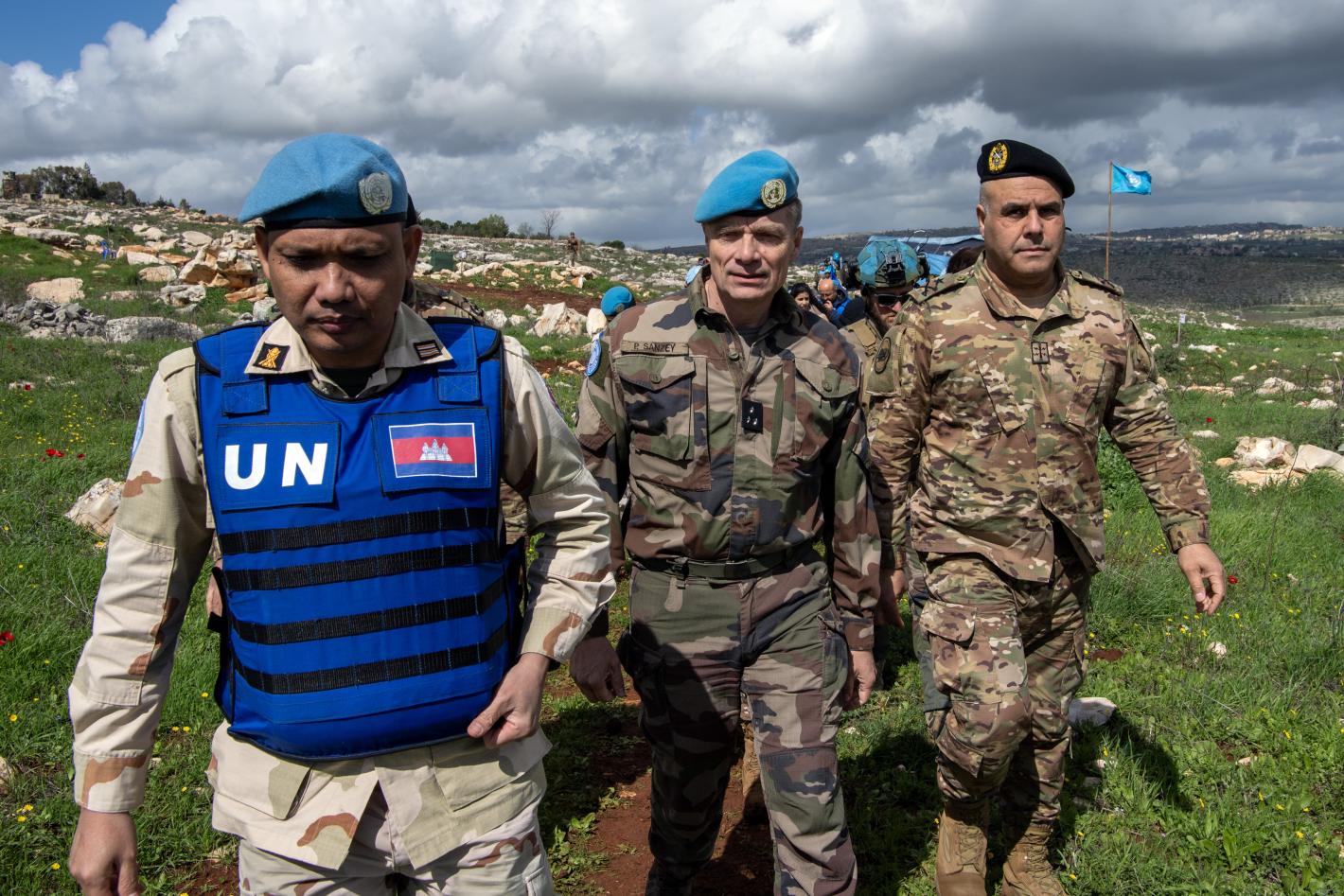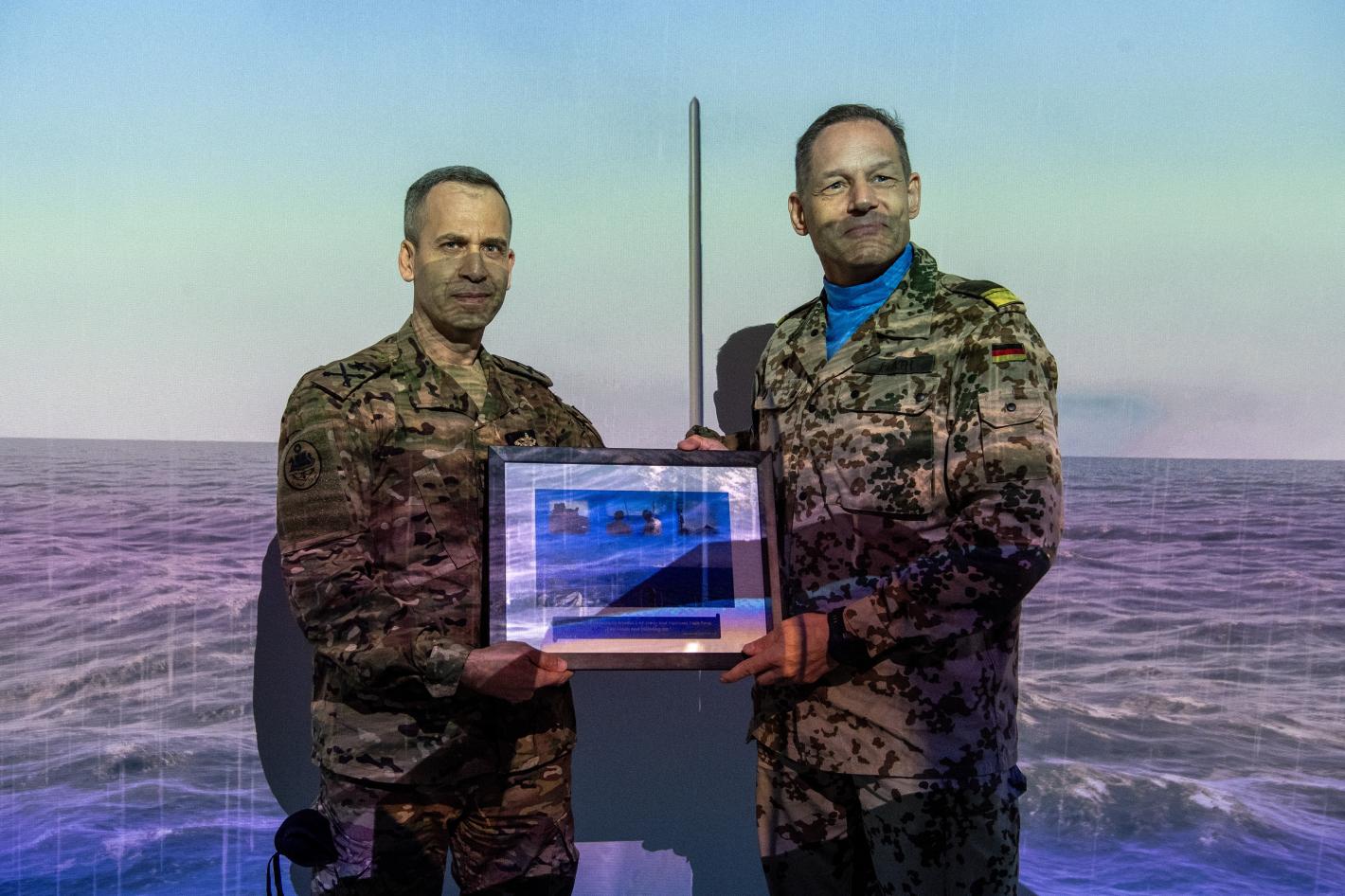Every day several hundred patrols, each with two or three white vehicles flying the UN flag, roll down the roads of southern Lebanon.
Added to that are a hundred Observation Posts, a number of foot patrols, de-miners and engineering teams working along the Blue Line and other areas on the ground and, in the skies above, white helicopters observing the Blue Line.
But what drives all these activities?
The international community, through the United Nations, committed a military force to restore international peace and security in southern Lebanon. UNIFIL's peacekeeping force, which counts more than 11,000 soldiers on the ground, has been mandated to monitor the cessation of hostilities; accompany and support the Lebanese Armed Forces (LAF) in their deployment throughout the South, including along the Blue Line, as Israel withdrew its armed forces from Lebanon; extend its assistance to help ensure humanitarian access to civilian populations and the voluntary and safe return of displaced persons; and assist the LAF in taking steps towards the establishment between the Blue Line and the Litani river of an area free of any armed personnel, assets and weapons other than those of the Government of Lebanon and of UNIFIL deployed in this area.
Monitoring, deterrence and support are the three main functions of UNIFIL's peacekeeping efforts on the ground.
Monitoring is achieved by a mix of dynamic and static operations. On the dynamic side, regular ground patrolling, both on vehicles and on foot, including coordinated patrols with LAF as well as what are called Area Domination Patrols that combine ground and helicopter patrolling, enables UNIFIL to maintain a presence across the area. Major roads, small paths and wadis are randomly patrolled. Particular focus is on ensuring respect for the Blue Line, the UN drawn 'Line of Withdrawal' of the Israel Defence Forces from Lebanon in 2000.
Specific operational considerations also draw from concern for protection of civilians and any potential escalatory action that could jeopardize the cessation of hostilities. With regard to static operations, UNIFIL and LAF operate co-located road checkpoints. UNIFIL troops apply the "blue ring" concept, deploying a layer of forces outside the checkpoint manned by LAF personnel who stop and search any suspicious vehicles.
Observation posts are the most typical static operational activity. These are located at vantage points allowing valuable area surveillance with particular focus on the Blue Line, including during the night by employing night vision devices.
Deterrence of any hostile activities is ensured through the combined presence and operations of UNIFIL and LAF troops. UNIFIL's Quick Reaction Force plays an important role in this regard. This Force is composed of conventional main battle tanks, self-propelled howitzers, radar-assisted anti-aircraft artillery and anti-tank missiles. Obviously this robust deterrence force needs to be trained and to understand the terrain and its characteristics very well. For this reason, periodic training exercises are planned across UNIFIL's area of operations, especially along the Blue Line.
Special counter-rocket-launching operations are conducted by UNIFIL together with LAF, during which troops jointly patrol a selected area by vehicle and on foot and establish temporary observation posts and checkpoints to stop and check vehicles and persons moving in the area, besides conducting searches of specific areas assessed as potential sites for launching rockets.
Supporting the Lebanese Armed Forces is an important element of UNIFIL's mandate. This is aimed at gradually transferring responsibilities to the LAF so that it assumes full and effective security control over UNIFIL's area of operations in line with the UN Security Council resolution 1701. To this end, UNIFIL has been conducting regular joint training and exercises with LAF, such as joint exercises in artillery live firing, medical evacuation, natural disaster response and so on. At the same time, UNIFIL continues to urge the international community to further intensify its material and technical assistance to the LAF.
Coordinated operations with LAF have a dual purpose: first the tactical goal of ensuring security; and second to support the LAF in performing more and more complex tasks and to assume tactical ownership of the Lebanese territory.
UNIFIL's ground operations conducted in cooperation with the LAF have helped create what the UN Secretary-General and the Security Council have called a "new strategic environment in southern Lebanon".
Col. Sergio Filippi Chief Joint Operations Centre/UNIFIL






